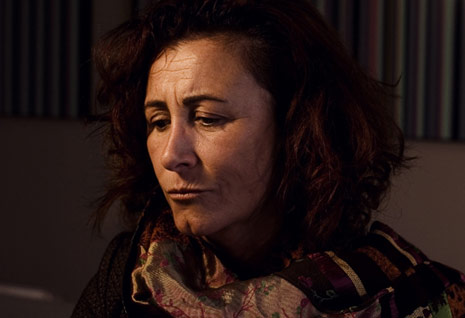
Elena Pita, writer and contributor to YO DONA, publishes' No you will love your mother '(Weidenfeld and Nicolson books), a novel recounting the suffering of a mother and son separated by justice. Inspired in many actual cases investigated by the journalist over the years, this book reflects, first, on the judicial system errors with regard to the custody of the children and, secondly, on the operation of these facilities care where many kids lose their childhood.
'Do not love your mother' complaint on the performance of some legal proceedings in the matter of child custody. What was your intention when writing? I began to take shape this book after investigating several cases in which parents battling over custody of sons absolutely innocent. I concluded that the judicial system he destroyed the lives of many children, broke their children. The novel recounts the suffering of a mother who is about to lose her son because the father's legal trickery and soon faces a trial in which he is accused of ordering the murder of the same father. My novel is fiction, but it feeds real cases can be found in libraries. Still, everything is the fruit of my imagination. I mixed several cases and have been filing down to make them one story that contains all the usual elements in the custody trial: violence, sexism, injustice ...
also criticized the meetings between parents and children protected.
There are many cases where children are forced to join his parents in the so-called 'meeting points', and in many cases these children do not want to see their parents because they have experienced violent with them or because simply do not know these men, who disappeared from their lives when they were born and now, years later, seeking custody. This is not only unfair, but also harmful to the child.
His novel launches a fierce criticism against the so-called Parental Alienation Syndrome (PAS).
is that now all men use the topic of SAP to get custody of children who do not want to know anything about them. If a child says he does not want to be with one parent, then it is alleged that SAP has not appreciated the possibility that simply do not want to see your father or mother because they had to endure his violence, verbal or physical, for years. I have known For a father who landed in the living room and, still, got custody of his son alleging that the mother had the child against him. Furthermore, SAP is not recognized either by the College of Psychiatrists and Psychologists for. It is a legal concept that streamlines processes and supported without rigorous medical examinations.
also throws darts at the parents 'associations, according to the narrator, put pressure on' the omnipotent substrate macho society. "
is that these partnerships have been those who achieved the SAP was admitted as a legal category. My research has led me to conclusion that these associations manipulate justice.
The novel opens with a description of the arrival of the son of the protagonist to a shelter. It is a heartbreaking chapter. Do you think we should rethink the functioning of such centers?
Children under custody proceedings real psychological need, not a bureaucratic process exercised by a cabinet psycho cold and calculating. I have heard a member of a cabinet of those saying that would give custody to the father because he had 'more social pull. " What argument is this! The experts or psychiatrists who are used in many trials are so used to child custody cases not discussed in detail for each child. And it'll send these kids to foster care pending resolution of the case without evaluating them in those institutions will lose some of their childhood. In my opinion, the family courts treat many children as if they were suitcases better cornering.
His literary career is characterized by novels ("Love without saying Amalia 'and' Do not love your mother ') or accounts (such as those included in the anthology of ill-treatment' shocks not only hurt 'and immigration' Immense close ') that address social issues clearly. Could you explain what your idea of literature?
I'm always looking for themes for my novels, stories or reports. Logically, there are very beautiful things to write about, but when I dive into a big project, need to believe in him. And it's not easy to believe in something. I go to fund only those matters that touch my soul and my journalism training leads me to the issues involved in what today we call society.
0 comments:
Post a Comment